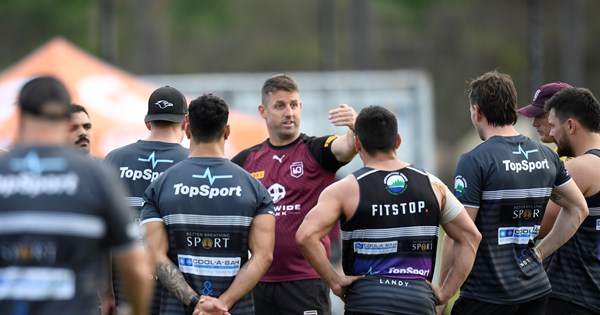Major loss for Matildas star after she complained about language used by blokes on the job site at her mining job: 'Toxic'

A former Olympian's explosive claim that she was forced to resign from her high-paying FIFO job at energy giant Chevron because male colleagues repeatedly used terms like 'lads' and 'fellas' has been thrown out by the Fair Work Commission.Thea Slatyer, a former captain of the Australian women's national soccer team, the Matildas, was employed by the multinational in August 2023 as the only female area inspector on the Gorgon LNG project at Barrow Island.A year later she resigned, saying her employment had been marred by ongoing sexism in what she described as a 'toxic' workplace.In her statement to the FWC, Ms Slatyer said she was subjected to persistent gendered language, terms such as gents, fellas, lads and brothers, as well as being excluded from critical work communications and assigned less complex tasks.'Nearly all instances, I have had to continually address and confront usually alone, and each time this has been an unpleasant and an unwelcoming experience which is wearing me down mentally,' she said.'Last swing alone I had to correct four male colleagues on five separate occasions to include me in their language.'Despite my efforts to address these issues, I feel that they continue to impact my ability to contribute fully and effectively.'Ms Slatyer said the site's culture was a major barrier to improving diversity and claimed it directly undermined Chevron's efforts to retain women in the workforce.Former Matilda's captain Thea Slatyer (pictured) has lost her unfair dismissal case in the FWCBarrow Island off WA's north coast is home to Chevron's massive Gorgon gas project and some of Australia's most tightly protected environmental zonesMs Slatyer said she was subjected to persistent gendered language, terms such as gents, fellas, lads and brothers, as well as being excluded from critical work communications and assigned less complex tasks.'The issues that led to my resignation accumulated over 12 months, starting from when I joined the area inspector team at Gorgon, a historically all-male and ego-driven environment,' she said.'The behaviours I observed and experienced in this highly male-dominated workplace left me feeling unsafe, excluded, and unsupported.'Ms Slatyer argued that by allowing repeated sexist remarks, failing to respond to formal complaints, and failing to implement effective anti-harassment measures, Chevron had subjected her to a pattern of bullying.'In turn, it created a direct risk to my health, evidenced by stress, headaches, loss of sleep, and frequent medical consultations,' she said.In her final months on Barrow Island, Ms Slatyer said she was spoken over or ignored in meetings and subjected to ongoing verbal, gendered, exclusionary language from male staff.After seeing the onsite medic, Ms Slatyer returned to Perth in August 2024 and requested extended leave without pay, either to focus on her studies or to transfer to another role at a different site.Australian female football player Thea Slatyer attends the Football Federation Australia awards dinnerThe following month, Chevron offered Ms Slatyer the opportunity to work from the Perth office for her next swing.However, Ms Slatyer was 'dissatisfied' with the offer because it gave no assurances the issues would be resolved.Chevron human resources manager Rebecca Ricci responded that unconscious gender bias issues are an industry-wide challenge and would take time to improve.FWC deputy president Gerard Boyce said Ms Slatyer rejected Chevron's offer to work in the Perth office for a temporary period while her concerns were addressed, with the aim of finding a solution that would allow her to return to site.'This was despite Ms Slatyer being told on multiple occasions that she was a valuable team member and that her supervisors wanted her to remain employed in her role on site,' he said.'A forced resignation requires there to be no other option.'Ms Slatyer has failed to demonstrate any action on the part of Chevron which could be objectively said to have put her in a situation where she had no choice but to resign.'To the contrary, during her employment Ms Slatyer was supported, including by being provided with flexibility to manage commitments outside of work. Ms Slatyer knew that she was a valued member of the team.'Chevron had in place measures to support its commitment to providing a safe, inclusive and respectful workplace.'He said the fact Ms Slatyer encountered unconscious gender bias, where individual employees unintentionally used gendered language during workplace interactions, cannot be 'sheeted home' as a foundation for a forced resignation.'The evidence does not support a finding that the Applicant's complaints as to conscious or unconscious gender bias were ignored, or were dismissed or trivially addressed.'Any concerns or complaints raised with supervisors were respectfully considered and engaged with.'Options reasonably available to the Applicant included working from the Perth office, engaging in further discussions, requesting a formal investigation, or lodging an external complaint.'












